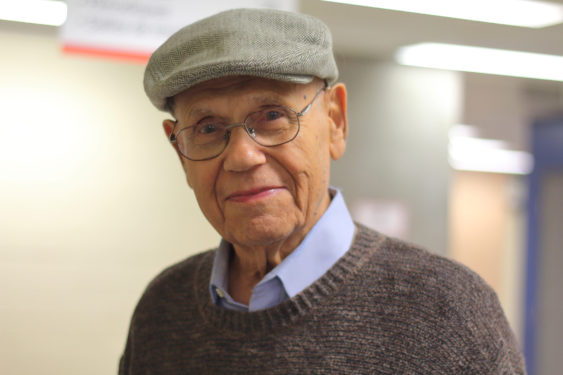
Gregory Baum, one of Canada’s most influential and controversial theologians and a participant in the Second Vatican Council, died Oct. 18. He was 94.
Baum was the author of the first draft of “Nostra Aetate,” the Vatican II declaration that addressed the relations of the Catholic Church with non-Christian religions.
As a young theologian, then-Father Baum shot to prominence in the early days of Vatican II. He was mentored by Cardinal Augustin Bea, then-president of the Pontifical Council for Promoting Christian Unity.
An ally of St. John XXIII, Cardinal Bea went looking for credible Catholic experts on Catholic-Jewish relations and found his man in Father Baum.
Baum was born to a Jewish mother and Protestant father in Berlin in 1923. At 17, in 1940, he came to Canada as a war refugee after a brief stay in England.
He became a Catholic during the war years and joined the Augustinian order in 1947. He was ordained a priest in 1954. He studied theology at the University of Fribourg in Switzerland.
His involvement in the Second Vatican Council began even before the world’s bishops met in Rome, as Vatican officials were planning the church’s first truly global meeting.
He attended all three sessions of the council as a peritus, or theological expert, consulting on “Nostra Aetate”; the Decree on Ecumenism; and the Declaration on Religious Freedom.
After the council, he taught theology and ethics at the University of St. Michael’s College in the University of Toronto. He left the priesthood in 1974 and married. He studied sociology at the New School for Social Theory in New York and, in the 1980s, taught in the religious studies department at McGill University in Montreal.
Baum was a frequent target of conservative campaigners in English Canada and the United States.
He was founder and editor of the influential journal, The Ecumenist, from 1962 to 2004. The journal highlighted connections between theology and sociology, politics and culture. In his retirement he became outspoken on Quebec politics, multiculturalism and economics.
